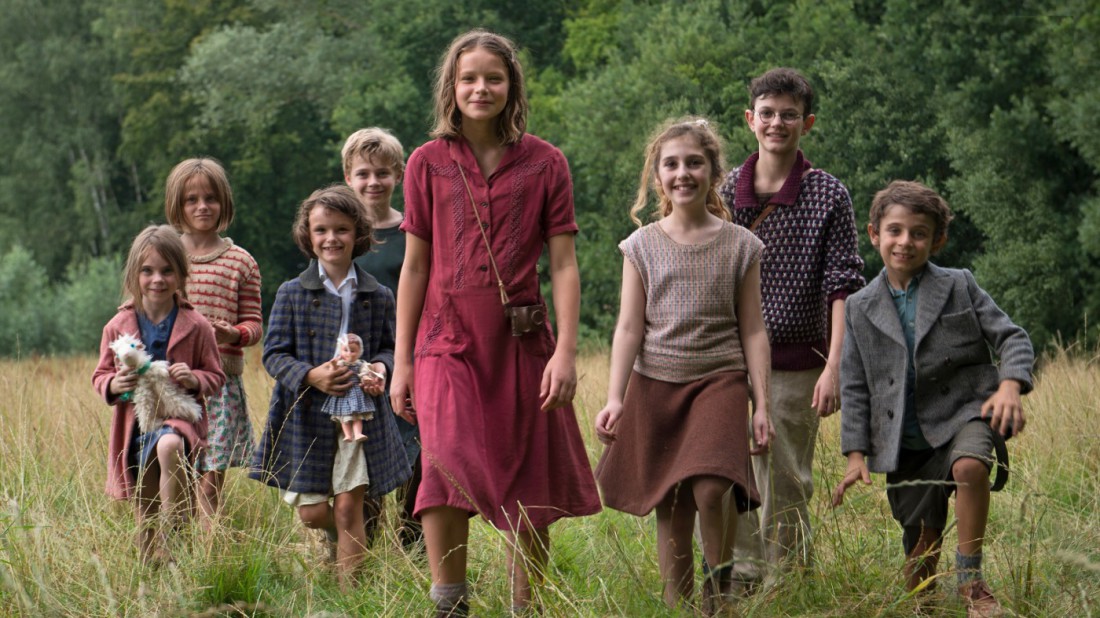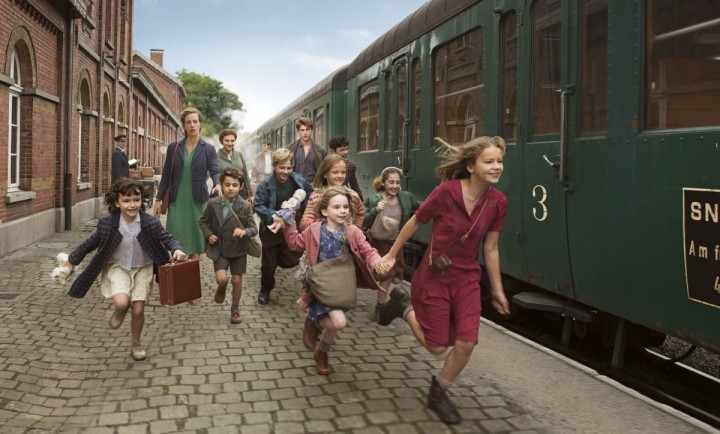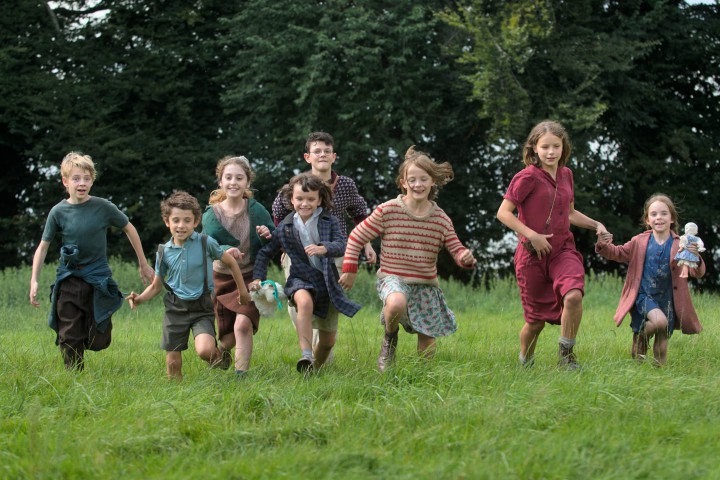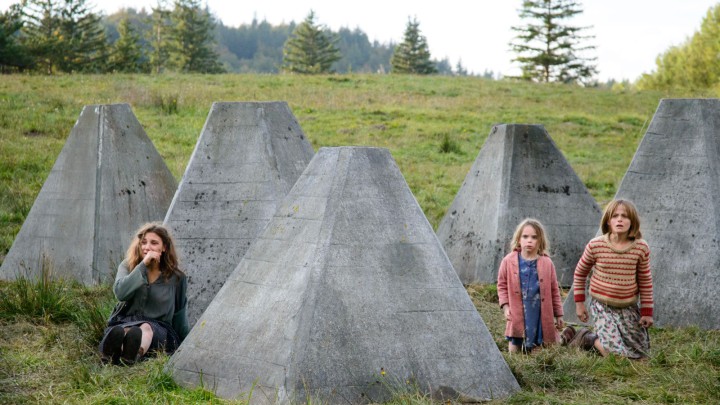I don’t know that I’ve ever come across a Holocaust movie for kids, but having seen Fanny’s Journey it occurs to me that the failure to cover such a crucial chapter in world history from exactly that angle has been an oversight. This is not to say that the topic hasn’t been touched on in family-friendly films prior to Fanny, but that no film that comes readily to mind has depicted the events of World War II in such an accessible way to children. Director Lola Doillon, working from an autobiographical novel by Fanny Ben Ami, accomplishes this task by grounding the narrative in a child’s perspective, while keeping the horrors of war — and the more grievous implications of the story — sufficiently on the periphery to avoid traumatizing young viewers.
The story follows twelve-year-old Fanny (newcomer Léonie Souchaud), tasked with looking after her two younger sisters after their father is arrested, forcing them into hiding in a French school. Along with the other Jewish children being illicitly sheltered, they are shuffled to another location just steps ahead of a German raid — and this security proves to be just as short lived. After the arrest of Mussolini, the children’s caretaker (a fantastic Cecile de France) sees the writing on the wall, shuffling them off to the Swiss border on a series of trains. Along the way, the children lose their cowardly guardian (Fanny’s unrequited older crush) leaving them to fend for themselves as they make their way through enemy territory towards sanctuary in Switzerland.
The constant threats the children face are depicted in a way that is at once relatable and comprehensible to a child’s perspective, and Doillon takes great pains to convey her point without generating too much menace for younger audiences. The issue with this approach is that it simultaneously undermines and aggrandizes Fanny’s heroism as she becomes the de facto leader of the children, straining credulity at points with its oversimplification of the events portrayed. Souchaud is a promising child performer, although many of her castmates don’t fare as well, and adult actors such as de France are generally relegated to a few scenes at most, lending the film a slightly amateurish quality at times. Doillon’s direction tends to favor a bright tonality, presumably intended to appear inviting to the film’s intended audience, but sweeping mountain vistas seem a bit too bucolic when they’re the backdrop for a twelve-year-old girl being shot at by Nazis.
If most films dealing with the Jewish experience during World War II tend to be unbearablely harsh Holocaust dramas such as Son of Saul, Fanny’s Journey is on the absolute opposite end of the spectrum. It’s a moving story that achieves an important aim by introducing young viewers to a very thorny topic in a way that they can comprehend, but that very virtue will limit its appeal to mass audiences. Still, it’s a touching and significant movie that fills an underserved gap in the cinematic recounting of a pivotal moment in the history of mankind, and as such, more than merits a viewing. Not Rated. French and German dialogue with English subtitles. Opens Friday at Fine Arts Theatre.







Before you comment
The comments section is here to provide a platform for civil dialogue on the issues we face together as a local community. Xpress is committed to offering this platform for all voices, but when the tone of the discussion gets nasty or strays off topic, we believe many people choose not to participate. Xpress editors are determined to moderate comments to ensure a constructive interchange is maintained. All comments judged not to be in keeping with the spirit of civil discourse will be removed and repeat violators will be banned. See here for our terms of service. Thank you for being part of this effort to promote respectful discussion.